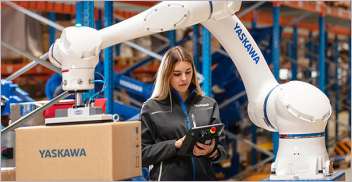Rumors of transportation and logistics titan UPS acquiring Chicago-based transportation management services provider Coyote Logistics for $1.8 billion have become a reality, with UPS announcing today that the deal is now official.
The deal is expected to close within 30 days and is subject to customary conditions and regulatory approvals, according to UPS.
This deal is significant in myriad ways, most notably in how it equips UPS as a major player in an increasingly crowded truckload brokerage space by acquiring Coyote, a company clearly on the rise with an excellent reputation throughout the industries it serves.
Coyote, as noted in a Bloomberg report, is backed by New York-¬based private equity firm Warburg Pincus, which first invested in the company in 2007.
Coyote Logistics was established in 2006 and reported annual revenue of $2.1 billion in 2014. Its CEO Jeff Silver will remain on board in his current role, with Coyote operating as a subsidiary of UPS. Coyote significantly increased its scale and reach, when it reached a merger agreement in March 2014 with Access America Transport, with Access America operating under the Coyote brand.

While financial terms of the deal were not disclosed, Coyote and Logistics officials said the combined entity would have a run rate revenue of more than $2 billion, 17 locations in North America, roughly 40,000 contracted carriers, and about 1,750 employees. And when Coyote brought Access America into the fold, it added major capabilities for flatbed serviced segments like heavy equipment and construction.
Industry stakeholders maintain this deal has the potential to surprise the market in that it represents the meshing of two different company cultures, with UPS being a highly process-oriented potentially bringing Coyote, a fast-growing company that is becoming a bigger player in the truckload brokerage space and on a fast track that is also known for its relaxed millennial culture.
UPS spokeswoman Susan Rosenberg told Logistics Management that UPS appreciates the Coyote culture and will protect and learn from their organization.
“We have a common set of core values that is shared, and UPS will leverage the Coyote innovation culture in that integration process,” she explained.
“We plan to maintain leadership and employee continuity there. This opens new markets for UPS to cross-sell other services from our broad portfolio … truly the one-stop shop from package to truckload along with integrating end-to-end offerings for road, rail, ocean and air.”
One significant reason this deal makes the most sense for UPS, according to an industry executive that declined to be identified, is that adapting Peak Season surge pricing, which was prevalent in 2014 on both the linehaul and small package side and UPS Freight, the company’s less-than-truckload business, requires a fair amount of purchased transportation, which is an area for Coyote can really benefit UPS.
What’s more, Coyote already has been very involved in supporting UPS peak operations in recent years, and UPS said it expects to further leverage Coyotes’s truckload carrier network, which is comprised of more than 35,000 truckload carriers.
UPS also cited other growth opportunities through this deal in the form of revenue growth and fleet efficiency synergy though backhaul shipments arranged by Coyote though existing UPS backhaul capacity within its trailer/tractor fleet.
“Coyote is specifically set up to handle large enterprise accounts and has large customers like Coke, Pepsi, and Wal-mart,” the executive said. “They can handle that purchased transportation well, so if UPS needs to buy $400 million of Purchased Transportation at Peak Season, it can, as purchased transportation is becoming a bigger and bigger part of UPS’s strategy and driving that cost down around Peak Season is a perfect solution.”
Coyote also servers myriad customers in other sectors, along with food and beverage and consumer goods, including paper and packaging, industrial and retail.
UPS CEO David Abney said that the brokered full-truckload freight segment is a high growth market that UPS expects will outpace other transportation segments.
“This high quality acquisition significantly increases UPS full-truckload scale and we are uniquely positioned to take advantage of exciting new revenue growth and synergy opportunities,” said Abney.
Jett McCandless, CEO of CarrierDirect, a Chicago-based transportation and logistics consultancy that provides advisory services to 3PLs and carriers, said this is a great buy for UPS, explaining that Coyote will still continue to be an amazing truckload brokerage, with UPS greatly benefiting during Peak Season, and non-Peak Season times, too, by having one of the best truckload brokerages in the market buying linehaul services for them as needed.
This deal is the most recent example of M&A activity in the truckload brokerage space. Some other recent examples include C.H. Robinson Worldwide acquiring Freightquote.com earlier this year for $365 million, and Echo Global Logistics buying Command Transportation in June for $420 million.
“The truckload brokerage market is so heavily fragmented,” said McCandless. “This is the largest brokerage acquisition in U.S. history. There is a trend of more brokerage acquisitions from a revenue standpoint over the last eight-to-12 months than there probably has been in the last five years combined. Shippers want to rely on brokers more, too. What is really driving this activity, though, is private equity entering the markets, as well as venture capital, which is leading to a lot of consolidation.”
Related Read: UPS Makes Substantial Move To Renewable Fuels

About the Author
Follow Robotics 24/7 on Linkedin
Article topics
Email Sign Up

















